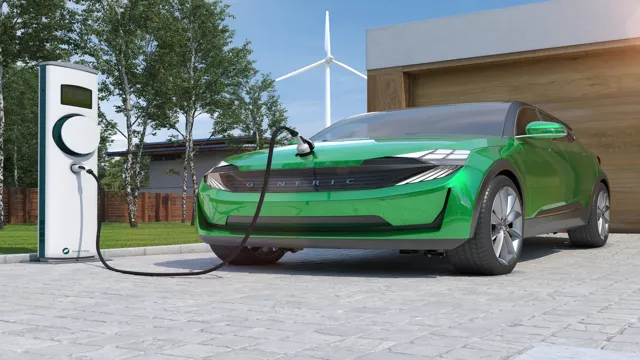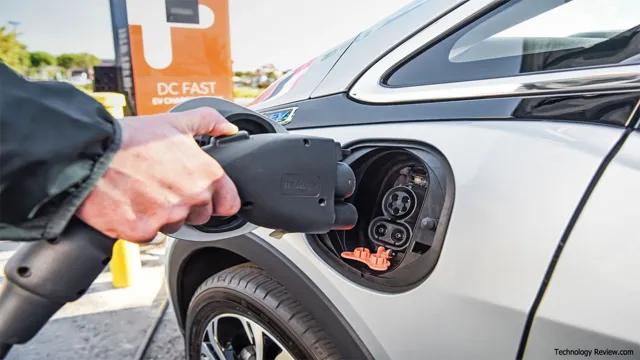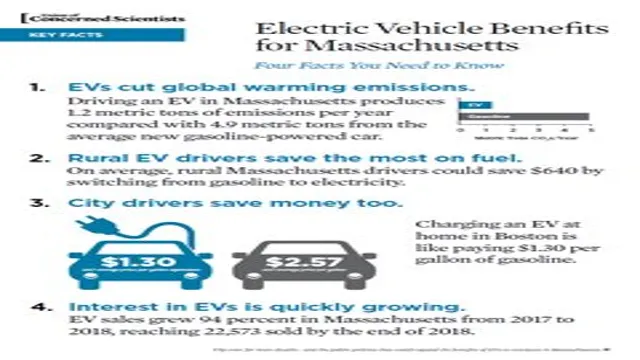Driving Towards a Greener Future: How Electric Cars Benefit the Environment
If you’re someone who’s environmentally conscious, you’ve probably heard of electric cars. These vehicles have been garnering a lot of attention lately, especially with more automakers producing them. But what makes electric cars different than traditional gasoline cars, and how do they impact the environment? In this blog, we’ll take a closer look at electric cars and the environment, exploring their benefits and drawbacks, and whether they really make a difference in the fight against climate change.
Reducing Emissions
Electric cars have been touted as a way to reduce emissions and benefit the environment. Thanks to advancements in battery technology, electric vehicles can now travel longer distances on a single charge than ever before. As a result, they produce fewer emissions than traditional gas-powered cars.
The benefits of electric cars to the environment are not just limited to emissions reduction, though. They also help reduce noise pollution, which is a common problem in urban areas. Additionally, since electric cars don’t rely on gasoline or diesel fuel, they help reduce our dependence on foreign oil and the associated environmental and geopolitical issues that come with it.
While electric cars may not be the solution to all of our environmental problems, they are certainly a step in the right direction. As we continue to develop new technologies and find ways to reduce our carbon footprint, electric cars will undoubtedly play an important role in creating a cleaner, more sustainable future. So yes, electric cars do benefit the environment!
Electric cars emit fewer greenhouse gases
Electric cars are a great way to reduce greenhouse gas emissions and protect the environment. Compared to traditional cars that run on gasoline, electric vehicles emit far fewer pollutants into the environment. This is because electric cars rely on rechargeable batteries for power, which generate electricity through a chemical reaction rather than burning fossil fuels.
By driving an electric car, you can significantly reduce your carbon footprint and contribute to a healthier, more sustainable future. Plus, electric cars are becoming more affordable and accessible as technology improves, making it easier than ever to switch to eco-friendly transportation. So, if you’re looking to do your part for the environment and save on gas costs, consider investing in an electric vehicle today!

Compared to gas-powered cars
When it comes to reducing emissions, electric cars are a much better alternative compared to gas-powered vehicles. The reason being that electric cars produce no tailpipe emissions that harm the environment. Gas-powered cars, on the other hand, emit harmful pollutants such as carbon dioxide, nitrous oxide, and sulfur dioxide that contribute to greenhouse gas emissions and air pollution.
Electric cars are greener because they use rechargeable batteries powered by electricity from the grid instead of fossil fuels. This means that the amount of greenhouse gas emissions depends on the source of the power, making it much easier to reduce emissions overall. Not only does this make electric cars an eco-friendlier option, but it also helps to reduce our dependence on fossil fuels and protect the environment for future generations.
By choosing an electric car, you can make a big difference in reducing emissions and contribute to a cleaner, greener future.
Lowering Energy Consumption
Electric cars are often touted as a solution to reducing the environmental impact of transportation. One of the major benefits of these vehicles is their ability to drastically lower energy consumption. Unlike traditional gas-powered cars, electric cars use electricity from batteries to power their engines.
This means that they don’t emit harmful pollutants that contribute to air pollution and climate change. Additionally, electric cars can be charged using renewable energy sources such as solar or wind power, further reducing their impact on the environment. While there are still some concerns about the environmental impact of manufacturing electric car batteries, the overall benefits of these vehicles are widely accepted.
So, do electric cars benefit the environment? The answer is definitely yes! By lowering energy consumption and reducing air pollution, electric cars are a step towards a cleaner, healthier planet for us all.
Decreased dependence on fossil fuels
Lowering energy consumption is a crucial first step in decreasing our dependence on fossil fuels. One way to achieve this is through encouraging energy efficiency in our homes and workplaces. This could involve installing energy-efficient appliances and lighting systems, using smart thermostats to regulate heating and cooling, and ensuring proper insulation.
Another approach is to promote the use of renewable energy sources, such as solar or wind power. By harnessing the energy from natural sources, we can reduce our reliance on non-renewable resources such as coal or oil. Embracing a more sustainable lifestyle can also play a role in lowering energy consumption.
This could include practices such as using public transportation, cycling or walking instead of driving, and reducing our use of single-use plastics. By making small changes to our daily habits and embracing more sustainable practices, we can take steps towards a future that is less reliant on fossil fuels.
Efficiency of electric engines
Electric engines have become increasingly popular for their efficiency, reliability, and environmental friendliness. The lower energy consumption of electric engines compared to their gasoline counterparts is one of the main reasons for their widespread adoption. By harnessing electrical energy, electric engines convert up to 90% of the input energy into mechanical motion, whereas gasoline engines convert only 25%.
This means that electric engines require less energy to produce the same amount of work as a gasoline engine, translating to lower fuel costs and reduced carbon emissions. The efficiency of electric engines is due to their ability to directly convert electrical energy into mechanical energy without the need for combustion, making them an ideal choice for a wide range of applications, from electric cars to industrial machinery. As the world shifts towards more sustainable modes of transportation and energy, electric engines will continue to play a critical role in reducing energy consumption and minimizing the impact on the environment.
Reducing Pollution
Electric cars have been touted as a potential solution to reducing pollution and decreasing greenhouse gas emissions. But do they actually benefit the environment? The answer is a resounding yes. Electric cars produce zero emissions, which means they don’t emit any harmful pollutants into the atmosphere.
They also don’t contribute to climate change as they don’t emit CO2 or other greenhouse gases. Furthermore, electric cars are powered by batteries that can be recharged from renewable energy sources such as solar and wind. This means that not only are electric cars cleaner than gas-powered vehicles, but they can also be powered using renewable energy.
In short, electric cars are a great way to reduce pollution and help protect the environment.
Reduction in air pollution
Reducing Pollution In recent years, there has been an increased focus on reducing air pollution globally. Air pollution can have severe health consequences and can lead to respiratory problems, heart disease, and even cancer. To tackle this issue, many governments have implemented policies aimed at reducing emissions from vehicles and industrial sources, as well as promoting the use of renewable energy sources such as wind and solar power.
In addition, individuals can take steps to reduce their carbon footprint by using public transport, biking or walking instead of driving, and reducing energy consumption at home. By working together, we can all contribute to a cleaner and healthier environment, and ultimately reduce the impact of air pollution on our health and well-being.
Impact on local communities
The reduction of pollution has a significant impact on local communities, as it directly affects the health and well-being of its residents. The emissions from industries, vehicles, and other sources contribute to air and water pollution, which can cause respiratory problems, skin irritations, and other health issues. By reducing pollution, we can improve the quality of life in our communities and create a healthier environment.
From implementing green transportation systems to promoting the use of renewable energy sources, there are various ways we can reduce pollution in our local communities. For example, we could encourage people to use public transportation or carpool, which can reduce emissions from personal vehicles. Another way to reduce pollution is by promoting the use of clean energy sources like solar and wind power.
By taking action to reduce pollution, we can create a healthier environment for ourselves and future generations.
Conclusion
In conclusion, the answer is a resounding yes! Electric cars benefit the environment in so many ways, from reducing harmful emissions to decreasing our dependence on fossil fuels. Not only do they offer a cleaner, more sustainable mode of transportation, but they also allow us to take a step towards a greener future. So the next time you hit the road, consider making the switch to an electric vehicle and join the movement towards a cleaner, healthier planet.
After all, who doesn’t love feeling good about saving the Earth while cruising around in style?”
FAQs
Are electric cars really more environmentally friendly than gas-powered cars?
Yes, electric cars produce significantly less greenhouse gas emissions and air pollutants than traditional gas-powered cars.
Is it true that electric cars can help reduce air pollution?
Yes, because they produce zero emissions and pollutants at the tailpipe, electric cars have the potential to greatly reduce air pollution and improve air quality.
How do electric cars compare to hybrid cars in terms of environmental benefits?
While hybrid cars do offer some environmental benefits, they still rely on fossil fuels and produce emissions. Electric cars, on the other hand, produce zero emissions and offer greater environmental benefits.
What is the impact of using renewable energy sources to power electric cars?
When electric cars are powered by renewable energy sources such as wind or solar power, the environmental benefits are even greater as there are no emissions associated with the production of the electricity.





